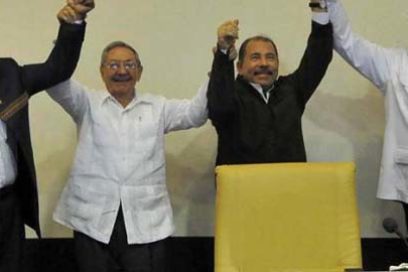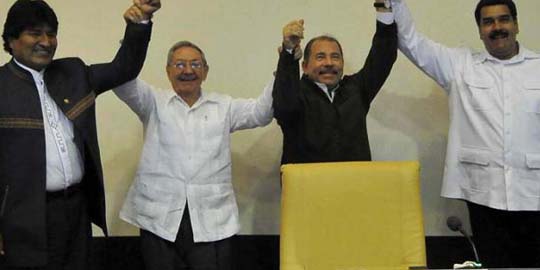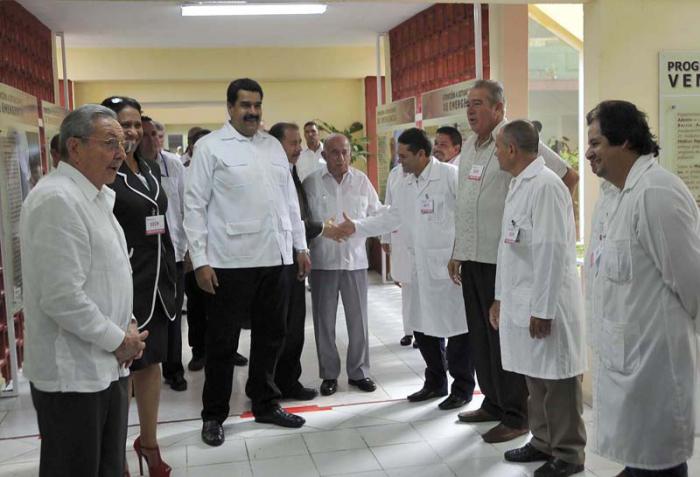YAIMA PUIG MENESES & LETICIA MARTÍNEZ HERNÁNDEZ (Taken from Granma)
A profoundly moving moment came yesterday, after the conclusion of the ALBA-TCP Ebola Summit, when regional leaders attending the event met with members of the Cuban medical brigades departing today, October 21, to Liberia and Guinea Conakry, to battle the epidemic impacting these West African nations.
At the Pedro Kourí Institute of Tropical Medicine (IPK), Cuban Minister of Public Health Roberto Morales Ojeda announced that the new brigades are composed of 91 health professionals, 53 headed to Liberia, and 38 to Guinea Conakry. As a group, they average 15 years of experience, he reported, adding that 39 are doctors, 48 nurses, and 67 % are under 50 years of age.
“These are our troops departing tomorrow,” President Raúl Castro told visiting ALBA leaders, as he asked individual brigade members about their experiences on other international missions. Two doctors preparing to leave reported that they had previously participated in five other missions.
Jorge Pérez, IPK director, summarized the history of the renowned institution and its current objectives, including the role it is playing in confronting Ebola.
He explained that the Institute had set up a vigilance ward for travelers coming from areas impacted by Ebola, and has provided training on treatment for brigade members. He presented a series of photos depicting the strict protection measures brigade members would be taking, and some of the safety precautions they would be use while working with Ebola patients.
Leonardo Fernández, 63 years of age and departing for West Africa, briefly described his experiences on missions in Nicaragua, Pakistan, Timor Leste, Haiti and Mozambique. “We are not mad,” he said, “We are determined doctors, trained by the Revolution, and we are sure we will return healthy.”
Following this gathering, ALBA leaders visited the Medical Cooperation Central Unit (UCCM), located in the Havana municipality of Boyeros, where all medical personnel participating in international missions is trained – a total of more than 50 000 who have served in 66 countries, according to Health Minister Morales, who said, “The presence of all of you here encourages us to continue upholding the legacy of Fidel and Raúl, to reaffirm that what we are doing is for humanity, for the real possibility that a better world is possible.”
Concluding the tour, President Raúl Castro bid farewell to each individual participant in the extraordinary ALBA Summit on Ebola, who all again expressed their gratitude to Cuba, the government and people, for the commitment to making ALBA an alliance for life.




